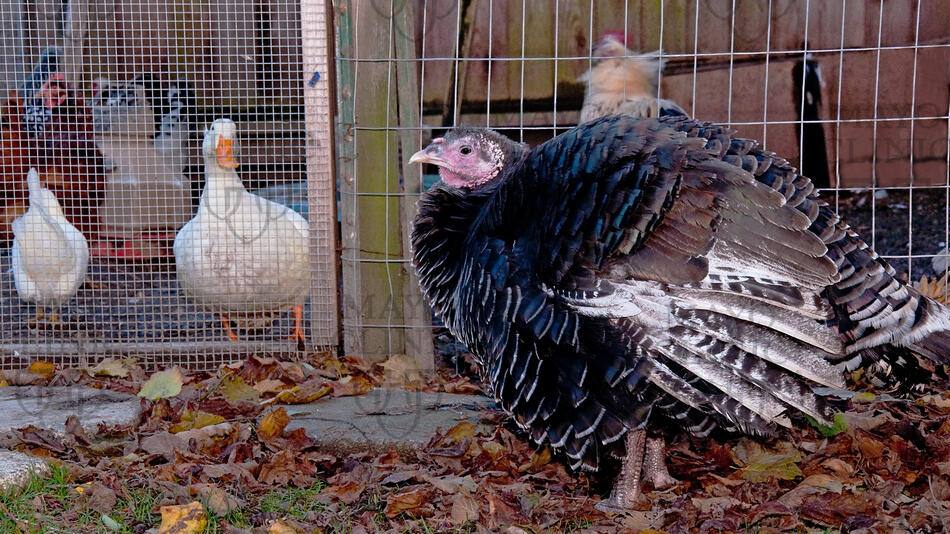-
News Cycle
What you need to know about the avian influenza outbreak

Scientists continue to monitor the ongoing global avian influenza outbreak — also referred to as bird flu — that has killed millions of birds and has now crossed over to some species of mammals. Currently, the risk to humans remains low; however, sporadic human infections with bird flu viruses have occurred.
"Rarely, we see crossover from birds into humans, with the current circulating strain of avian influenza causing a large outbreak among wild birds and poultry. We have seen only about 10 human cases worldwide since December 2021," says Dr. Matthew Binnicker, director of the Clinical Virology Laboratory at Mayo Clinic.
"The reason why the latest avian influenza outbreak is being watched so carefully is because of the sheer number of birds that have been affected during this latest outbreak. There's been almost 60 million poultry affected by the current avian influenza outbreak. Wild birds and — somewhat concerning — wild mammals, including fox, mink and bears, have been infected with this avian influenza strain."
Matthew Binnicker, Ph.D.
Dr. Binnicker says the reason it could be concerning is because it indicates the virus is adapting to become more efficient at infecting mammalian cells, which more closely resemble human cells.
Watch: Dr. Matthew Binnicker talks about avian influenza.
Journalists: Broadcast-quality soundbites are available in the downloads at the bottom of the posts. Please courtesy: "Matthew Binnicker, Ph.D./Laboratory Medicine and Pathology/Mayo Clinic."
In this Q&A, Dr. Binnicker answers questions about avian influenza.
How are migratory birds impacting avian influenza?
"There's definitely some concern right now as we're in peak migratory season — with birds coming north after the winter — that some birds which are infected with avian influenza are going to increasingly come into contact with other wild birds as well as those in poultry facilities. When we see cases in poultry facilities, the owners of those farms have to make a really difficult decision. Do they cull the poultry to help prevent the spread or transmission to other birds? Of course, that dramatically impacts our food supply and is one important reason why we've seen egg prices increase considerably over the last few months."
How is avian influenza transmitted?
"The virus is mainly being transmitted from infected wild birds. Birds that are migrating from the Southern Hemisphere to the Northern Hemisphere during the spring months may interact with birds that are on private grounds or in poultry facilities. When infected wild birds interact with other wild birds, mammals or poultry that are kept in private facilities, the virus can be transmitted to those animals."
Is there a human vaccine in development?
"The good news is that we've known about avian influenza for decades. This has allowed for some preparation to take place, including the development of vaccines, in the event we see a large-scale outbreak in humans. They are what we call candidate vaccines that the Centers for Disease Control and Prevention have begun to develop. And I believe the CDC has already shared those candidate vaccines with some vaccine manufacturers.
"There is also some good evidence that the antivirals we use to treat human strains of influenza are at least somewhat effective in treating the avian influenza strains. So we already have some tools to help us fight against a potential avian influenza outbreak."
What is the risk of a human pandemic due to avian influenza?
"The risk today is low. And that's because, when we look at the virus infecting birds, it doesn't have the properties yet to infect humans efficiently and, more importantly, spread from one human to another. But we're beginning to pay very close attention because of the sheer number of birds infected and the fact that we're starting to see infections in certain mammalian species. That tells me that the virus is slowly adapting. It's able to infect and potentially spread from one mammal to another. And as we’ve learned during the COVID-19 pandemic, every time a virus infects a host, it has the chance to mutate. So the greater the frequency of infections, the greater the odds are that a virus might develop the properties needed to efficiently infect a human and then spread from human to human.
"Will that happen? No one knows. But the important thing is for us to continue to monitor the situation and proactively develop the tools to test, treat and prevent avian influenza from causing a pandemic in the human population."
What can people do to remain safe?
"If you have birds at home — chickens, other types of birds that you keep on your property — if they become ill, contact state health officials. In addition, if you encounter a sick or dead bird, don't handle the animal or the carcass.
"We're seeing that individuals who have become infected with the current circulating strain of avian influenza have typically acquired the infection by handling a sick or dead bird. So those are two important steps. Contact your state health officials if birds on your property or at your facility are ill, and don't handle birds that are ill or have died."
Related posts:
- Mayo Clinic monitoring rising avian influenza cases, preparing for potential human-to-human outbreak
- Infectious Diseases A-Z: Avian influenza outbreaks







